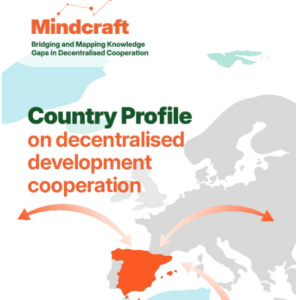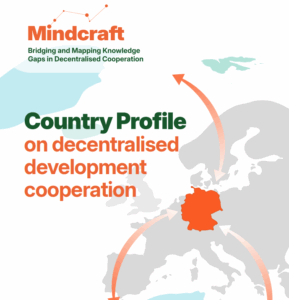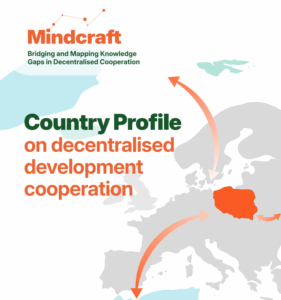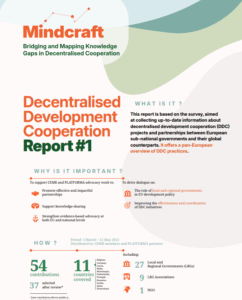Mindcraft
The Mindcraft project aims to enhance European decentralised development cooperation by improving knowledge and know-how, fostering multi-level dialogue for EU development policy implementation, and ensuring coordination and alignment of activities among stakeholders.
The project activities include gathering, mapping and analysing decentralised cooperation practices of EU sub-national governments and their associations, generating reports and country-level analyses with best practices and innovative approaches, as well as conducting a survey about the EU Delegations work with local and regional governments with the intention to inform the strategy on European development cooperation efforts and address barriers effectively. Additionally, the project aims to strengthen partnerships and align activities by supporting the dialogue and coordination with identified stakeholders, programmes and initiatives.
Overall, through these activities, the project aims to empower local and regional governments to play a more active role in European development cooperation, as well as support their efforts in addressing contemporary challenges and achieving global development goals.
Country Profiles
The country profiles offer a short overview of national models of (decentralised) development cooperation frameworks in selected EU Member States. The aim is to provide insights into specific mechanisms and modalities of analysed national frameworks and identify enabling factors as well as challenges related to practical implementation, focusing on the role and opportunities for local and regional governments and their associations.
The country profiles are compiled for: Belgium, France, Germany, Italy, Poland, Spain and Sweden. Those seven countries offer sufficient variance regarding geographical coverage, the territorial-administrative organisation, and provide different examples of established frameworks for (decentralised) development cooperation, including varying legal and policy guidelines, coordination mechanisms as well as funding opportunities, which altogether influence the ways in which local and regional governments engage in decentralised development cooperation.
The overview provided in seven country profiles below is based on the document analysis (available official national legal and policy documents, relevant studies and reports, such as OECD DAC Mid-term reviews and OECD Development Cooperation Peer Reviews) and semi-structured interviews with experts from national ministries, development agencies and organisations, local and regional governments and/or their associations, and academia.
Mindcraft reports
Latest News
Contacts
GODINHO LOURENCO Daniela
Head
Administration & Finance
GURI Durmish
Director
Projects & Programmes
HETZ Léa Agathe
Project Officer
Communications & Events
SKAZLIC Ivana
Research
Analyst
TONHAUSER Boris
Director
Platforma
N/A





